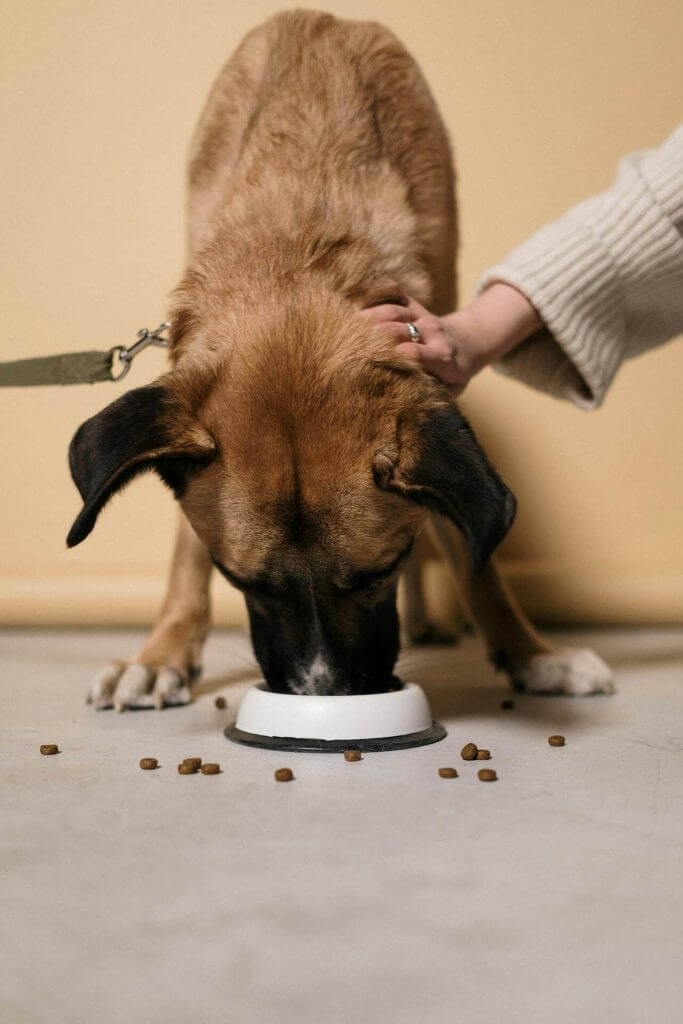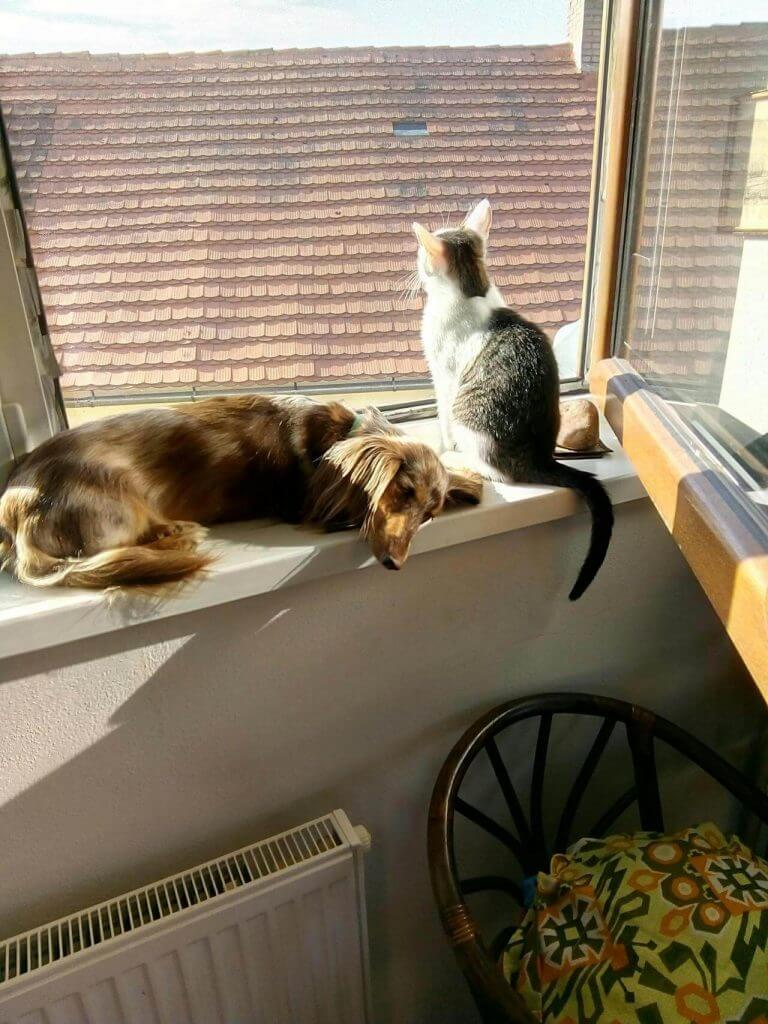You may consider yourself more of a “cat person” or a “dog person” but it turns out that many of us are both. 17% of American households have both dogs and cats, proving that interspecies friendship (or at least tolerance) is completely possible.
When it’s dinner time in multi-pet households, one of the biggest challenges can be keeping everyone in their own food dish. Dogs who live with cats are likely to be curious about what their feline siblings are eating and may find it hard to resist sneaking a bite.
If it feels like it requires constant vigilance to keep your dog from woofing down the cat’s dinner, you may wonder if there’s any harm in it — or why you have to buy two kinds of food in the first place. Here’s what pet parents need to know about their cat-food-loving dog.
Anatomically, cats and dogs are pretty different.
Cats are obligate carnivores who rely on meat for essential nutrients. Their acidic stomachs and short intestines are built to break down proteins efficiently, so they don’t rely on fiber for digestion or carbohydrates for energy (in fact, a high-carb diet is a risk factor for feline diabetes). High-quality cat foods are protein-first to ensure that they provide all of the vitamins and amino acids that cats can’t make on their own.
Dogs, on the other hand, need to supplement their meat-based diet with carbs and fiber for healthy digestion. Dog food is made to be consumed at a much higher volume than cat food, so it is lower in fat, calories, and protein by weight.
 Why Dogs May Crave Cat Food
Why Dogs May Crave Cat FoodBecause cat food is protein-first and higher in fat, it’s not unusual for dogs to decide that they prefer the cat’s dinner to their own. In fact, sometimes cat food obsession runs so deep, it may explain why your dog raids the litter box.
This behavior is a nuisance, it’s understandable. Our dogs’ wolf ancestors were opportunistic hunters who appreciated an energy-dense meal whenever possible. Your canine family members may find cat food may be exceptionally delicious, but it’s not a good idea to let them indulge.
Cats and dogs have very different nutritional needs. Though the occasional bite of cat food isn’t likely to have serious repercussions, repeat offenders can experience health problems.
Generalized gastrointestinal distress is the most common short-term consequence for dogs who steal the cat’s dinner. If vomiting, diarrhea, and gas don’t resolve quickly, visit your veterinarian. It’s possible that a more serious issue is to blame.
The fat that makes cat food so appealing to dogs also makes it dangerous because it can easily cause pancreatitis. Digestive enzymes produced in your dog’s pancreas are responsible for breaking down dietary fat. Too much rich food can cause the pancreas to become inflamed.
Pancreatitis is extremely painful and can lead to death if not treated quickly. Get to the vet right away if your dog is experiencing:

Because cats’ bodies don’t produce the same range of vitamins and amino acids as their canine counterparts, cat food contains a much higher concentration of these nutrients. Dogs who gorge themselves on cat food may accidentally consume a toxic dose of fat-soluble vitamins.
Acute vitamin D toxicity can be life-threatening for dogs, but harmful levels can also build up over time. Dogs who consistently sneak cat food may be consuming vitamin D faster than their bodies can metabolize it, putting them at risk for kidney failure.
Even if cat food doesn’t cause your dog a medical emergency, regular consumption will cause them to gain weight. Dogs with a poor body condition score (BCS) are at risk for joint problems, diabetes, and an overall lower quality of life.
If you want to help your dog kick the cat food habit, it’s not reasonable to expect them to rely on willpower.
Your presence during meal times may be enough to discourage sneaky bites, but even well-behaved dogs probably can’t resist temptation if you’re out of sight. Especially for pet parents who let their cats graze throughout the day, it’s best to create a physical barrier for your dog. Move your cat’s bowl to a higher elevation, or use a pet gate to create a separate feeding area.
Finally, avoid using cat food as a reward. Instead, head to the kitchen for some equally convenient, healthy dog treat options.